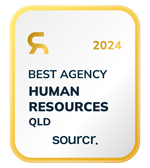 We hear a lot about unconscious bias during the recruitment process. In light of this, I am sharing the possible subjective interpretations often made when someone is reading a resume … particularly by experienced HR and recruitment professionals. Subjective interpretations really can be the difference between being offered an interview or not.
We hear a lot about unconscious bias during the recruitment process. In light of this, I am sharing the possible subjective interpretations often made when someone is reading a resume … particularly by experienced HR and recruitment professionals. Subjective interpretations really can be the difference between being offered an interview or not.
1. Spelling errors – Interpretation: if someone can’t be bothered to ensure their resume is perfect, how much will they care about doing their best in their everyday job?
2. Giving years only for dates, e.g. 2007 to 2008 – Interpretation: what is the candidate trying to hide by not being specific about dates (e.g. January 2007 to September 2008) and were they in the role for a year or just a few weeks? There is no problem with gaps of employment during a career history, however it is useful to spell out what activity was being undertaken at that time.
Whilst talking about dates, a resume that shows someone who has had a lot of jobs causes the reader to wonder why they have moved on so many times. If there are good reasons for frequent movement between jobs, outline the reason for leaving at the end of each section so you’re not leaving it to the reader’s imagination as to why you have moved on.
3. Flowery profiles written by candidates. For example, I am a team player, excellent communicator, organised, good people manager, etc. – Interpretation: why has the candidate spent time putting this together? These statements are meaningless; they are a candidate’s self-analysis. References will provide information about a candidate’s character and how good their work is. If you want to include a profile, ensure it is factual.
4. Lack of facts – Interpretation: why is the candidate not being specific about outcomes they have achieved in their role – is it because they didn’t really achieve too much? Facts on outcomes, achievements and successes (e.g. achieved 110% target in year one) are much more tangible.
5. Consistent formatting – Interpretation: if the resume is too long, has different fonts and different ways of outlining information in the resume, the reader wonders whether the candidate is able to analyse information, summarise and structure it effectively. It may also raise concerns about a lack of attention to detail.
6. General resume – Interpretation: it is obvious when a candidate has submitted a general resume instead of one specifically written to address the requirements of an advertised role, which leads the reader to wonder how keen on the position the candidate really is. There really is value in submitting a resume tailored to the specific job advertisement and key selection criteria.
For your best chance of minimizing the impact of unconscious bias, you may need help from a specialist industry recruiter. We can help you present your experience and work history in a professional and compelling format that will avoid any room for misinterpretation. For confidential advice, please contact samantha.smith@parkhousebell.com.au
#resume #unconciousbias #resumewriting #careeradvice


